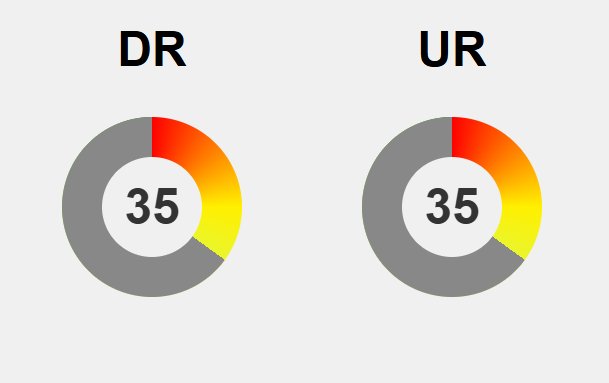Is focusing solely on grades masking a child’s true potential? Many parents believe high marks reflect intelligence and future success, but beneath the surface, grades often measure compliance—memorization and conformity—rather than critical thinking or creativity. This narrow focus can foster anxiety, diminish resilience, and teach children that their worth hinges on external validation. Instead, real development hinges on qualities like curiosity, effort, character, and the ability to handle failure. By emphasizing these traits over test scores, we can nurture confident, adaptable individuals prepared for life’s complexities. But how do we shift from a system obsessed with quantification to one that values growth, effort, and integrity? Embracing a holistic approach—using diverse assessments and praising perseverance—reveals a more authentic measure of success. Ultimately, fostering internal motivation and resilience prepares children not just for academic achievement, but for meaningful, lifelong fulfillment.
Rethinking Success: Are Grades Truly Reflecting Child Development?
When you think about grades, what comes to mind? For many parents, they represent a straightforward way to measure a child’s success—simple letters or numbers that supposedly reflect understanding, effort, or potential. But is that really what they measure? Or are grades just a reflection of a child’s ability to conform, memorize, and please teachers? This question gets to the heart of a much bigger conversation about what we’re truly evaluating in education.
Many of us grow up believing that high grades are the ultimate indicator of intelligence and future success. From elementary school through college, report cards and test scores become the benchmarks we rely on. We tend to assume that a child earning top marks is destined for greatness. But does a high grade really mean they understand the material? Or just that they can perform well under specific conditions? The distinction matters because it shapes how we view their potential and growth.
The problem is that grades often focus more on surface performance than on meaningful skills. They reward memorization, punctuality, and the ability to answer questions in the way teachers expect. When a student gets good marks, it might mean they can recall facts quickly, but it doesn’t necessarily mean they can think critically or solve problems creatively. This narrow focus can hide qualities like curiosity, resilience, and independent thinking—traits that are vital far beyond the classroom.
Focusing solely on grades can distort priorities and affect a child’s confidence. When children are told their worth depends on scores, anxiety and fear of failure often follow. Instead of exploring ideas or asking questions, they become preoccupied with earning the “right” answer. This environment discourages genuine curiosity and turns learning into a game of pleasing adults and chasing external validation, which can diminish their motivation to learn for its own sake.
Ultimately, grades are a limited tool. They don’t capture qualities like creativity, emotional resilience, or character—traits that are essential for navigating today’s complex world. Relying heavily on scores risks teaching children that their value lies in external validation rather than their own growth. Recognizing this allows us to rethink what truly matters in child development and focus on fostering skills that prepare them for real-life challenges.
Beyond Scores: What Do Grades Really Measure?
Grades often serve as a quick snapshot of a child’s ability to follow instructions and perform well on tests, but they don’t reveal much about true intelligence or potential. These scores primarily measure compliance—how well a student adheres to deadlines, memorizes facts, and answers questions as expected. They rarely reflect qualities like critical thinking, creativity, or problem-solving skills, which are far more important in real life. For example, a student might excel at multiple-choice exams by memorizing information but struggle to apply that knowledge in unfamiliar situations. This gap shows how grades can mask deeper qualities like curiosity and resilience.
What grades truly capture is how well a child conforms to the expectations set by teachers and the educational system. They tend to reward behaviors like rote memorization, punctuality, and timely submission, rather than genuine understanding. A child who can recall facts accurately and meet deadlines might earn a high grade, even if they haven’t truly grasped the core concepts. Meanwhile, a student who approaches problems differently or thinks outside the box might not fit the mold and receive lower marks, despite possessing valuable skills. This mismatch highlights that grades often reflect adherence to standards more than actual comprehension.
Focusing heavily on grades shifts the emphasis away from meaningful learning toward simply completing tasks. Instead of encouraging exploration or questioning, students may become fixated on getting the “right” answer quickly. This environment discourages deep engagement because the goal becomes finishing assignments efficiently rather than understanding the material. As a result, critical skills like analyzing, synthesizing, and evaluating information don’t get enough attention. Over time, this narrow focus limits their ability to tackle complex problems outside the classroom, where creativity and critical thinking are vital.
Grades also tend to undervalue originality and innovation. A student who develops a unique solution or approaches a problem in a new way might not earn high marks if their method isn’t traditional. This emphasis on standard answers discourages taking risks or exploring new ideas, teaching children that conformity is what earns good grades. Consequently, they learn to prioritize following the expected path over fostering creativity, which can hamper their ability to adapt and innovate in real-world situations.
Some argue that grades provide necessary benchmarks and motivation, but it’s crucial to recognize their limitations. They often promote a narrow view of intelligence—one that ignores qualities like emotional resilience, character, and curiosity. When children tie their self-esteem to their scores, they risk developing a fixed mindset, believing their worth depends on performance rather than effort or growth. This mindset can make setbacks feel like personal failures, discouraging experimentation and perseverance.
In the end, understanding what grades measure can help us shift focus toward qualities that truly matter—curiosity, resilience, character, and critical thinking. These traits prepare children not just for academic success but for the unpredictable challenges of life. Instead of relying solely on scores, we should look at how children develop these essential skills and character, fostering a more accurate and holistic view of their potential.
The Hidden Costs: How Overemphasizing Grades Impacts Young Minds
When children become obsessed with grades, the pressure can quickly spiral out of control. They start to see their self-worth as directly tied to their scores, creating a relentless drive to perform perfectly. This intense focus often leads to anxiety and burnout, especially in young minds still learning how to cope with setbacks. Instead of viewing mistakes as natural parts of learning, many kids internalize failure as a personal flaw, which only deepens their fear of falling short. The result is a cycle where the fear of failure stifles curiosity and discourages risk-taking, hindering genuine growth.
The mental health impact is significant. Kids who rely heavily on grades to affirm their value often experience feelings of inadequacy when they stumble. This constant need for external validation can erode confidence and create a fragile self-esteem. Over time, the stress of maintaining high scores becomes exhausting, leaving children emotionally drained and less motivated to engage with learning beyond the surface level. They begin to see effort and persistence as less important than simply avoiding failure, which hampers their resilience.
Focusing too much on grades also skews priorities. Instead of encouraging exploration or deep understanding, children become preoccupied with finishing assignments quickly and earning the “right” answers. This approach discourages critical thinking, analysis, and creativity—skills essential for real-world problem-solving. When success is measured only by test scores, children often learn to value efficiency over understanding, which can stunt their ability to adapt and innovate outside the classroom.
Moreover, an overemphasis on grades teaches children that setbacks are personal failures rather than opportunities to learn. This fixed mindset can lead to avoidance of challenges altogether. Instead of viewing mistakes as part of growth, kids see them as proof of their inadequacy. This mindset erodes resilience, making it harder for them to bounce back from setbacks and persevere through difficulties. Over time, this can create a fear of trying new things, limiting their development of grit and emotional strength.
While some argue that grades motivate effort and provide clear benchmarks, this perspective overlooks their darker side. When children’s self-esteem hinges on scores, they become dependent on external approval, which can diminish intrinsic motivation. This reliance often results in superficial engagement, where effort is driven by fear of failure rather than curiosity or passion. Such a mindset undermines their ability to develop authentic self-confidence and the resilience needed to handle life’s unpredictable challenges.
The most damaging consequence is how this obsession with grades erodes self-compassion and resilience. When setbacks are seen as disasters instead of natural learning opportunities, children often develop a fear of trying new things. They become so afraid of disappointing others or themselves that they shy away from risks altogether. Teaching children to see failure as a stepping stone rather than a setback is crucial. It fosters the grit and emotional strength necessary for true growth and success beyond the classroom.
For parents and educators seeking practical strategies to promote healthier attitudes toward learning, exploring comprehensive approaches can be highly beneficial. One effective method is to focus on cultivating a growth mindset, which emphasizes effort and perseverance over mere grades. You can learn more about how to support this mindset through resources like this guide on fostering resilience and intrinsic motivation, which offers valuable insights into nurturing children’s love for learning beyond external metrics.
Nurturing Growth: A Holistic Approach to Developing Resilient, Curious Children
Fostering growth beyond test scores means shifting our focus from what children achieve on paper to the qualities that truly shape who they become. Parents and educators can encourage curiosity by celebrating questions, exploration, and the process of learning rather than only correct answers. When kids are allowed to wonder, experiment, and sometimes stumble, they develop resilience and a growth mindset—traits that are essential for facing challenges outside the classroom. Praising effort, persistence, and kindness helps build a sense of self-worth rooted in character, not just grades.
Everyday moments are golden opportunities to reinforce these values. When a child stays late to help a friend or keeps trying a difficult task, they demonstrate qualities like empathy and perseverance that can’t be measured on a report card. Recognizing and discussing these actions shows children that effort and integrity matter more than a score. This approach teaches them success is about the process, not just the outcome, and that setbacks are part of learning rather than defining their worth.
Schools and teachers can support this shift by adopting more holistic ways to evaluate progress. Methods like portfolios, project-based assignments, and peer reviews provide richer insights into a child’s development than standardized tests alone. These approaches allow children to showcase creativity, collaboration, and critical thinking—skills often overlooked in traditional grading systems. When children see their unique talents and efforts valued, they become more motivated to engage deeply and develop a genuine love for discovery.
Parents also play a vital role by cultivating an environment where effort and character are celebrated alongside achievement. Encouraging children to reflect on their learning, recognize their growth, and set personal goals fosters self-awareness and internal motivation. When children understand that their worth isn’t tied solely to letter grades but also to resilience and kindness, they develop confidence rooted in who they are, not just what they achieve.
This holistic approach isn’t about abandoning assessments but reimagining what they measure. By emphasizing qualities like curiosity, perseverance, and emotional resilience, we help children become adaptable, confident problem-solvers. Such qualities lay a strong foundation for success in life’s unpredictable challenges. When effort and character take center stage, we nurture individuals prepared not only to excel academically but to thrive as resilient, authentic people.
Supporting this shift requires a conscious effort from both parents and educators. It involves listening more to children’s stories of effort and kindness, rather than just their report card grades. It means creating spaces where mistakes are seen as natural steps rather than failures. When children experience validation of their character and persistence, they internalize the idea that who they are matters more than what they score.
By redefining success to include growth, resilience, and kindness, we equip children with the tools they need for lifelong fulfillment. This broader perspective encourages them to take risks, learn from setbacks, and pursue passions with enthusiasm. When effort and character become the true measures of achievement, we help cultivate a generation capable of navigating life’s complexities with confidence and integrity.
Redefining Achievement: Embracing Character, Effort, and Critical Thinking
Focusing on effort, character, and critical thinking rather than just grades reshapes how we see success. Instead of relying on quick measures like test scores, we start valuing qualities that truly last—resilience, curiosity, kindness, and the ability to navigate challenges. These traits form the foundation for children to thrive not only in school but throughout life. When effort and character are recognized as meaningful achievements, children learn that their worth isn’t determined by a number on a report card but by who they are becoming through their actions and mindset.
This broader view encourages kids to take risks, embrace mistakes, and see setbacks as part of growth. It cultivates a growth mindset—an understanding that abilities can develop through persistence and effort. When children see failure as a stepping stone rather than a personal flaw, they build confidence and resilience, equipping themselves for the unpredictable hurdles ahead. Celebrating character over compliance helps foster intrinsic motivation, inspiring them to pursue learning because it’s meaningful, not just because they’re chasing a grade.
Shifting our focus also means redefining success in education. It’s about nurturing qualities that foster adaptability, empathy, and problem-solving—skills essential beyond academic settings. When children internalize that their value comes from effort and integrity, they develop a healthier self-esteem rooted in authenticity. This mindset creates confident adults capable of handling setbacks with grace and persistence, essential traits for navigating a complex, ever-changing world.
Parents and educators play a crucial role in this transformation. By emphasizing the importance of curiosity, kindness, and effort, and by recognizing progress in these areas, we send a powerful message: who children are matters more than what they score. This approach not only cultivates a love for learning but also helps build resilient, well-rounded individuals prepared for life’s varied challenges.
In embracing a holistic view of development, we move away from fleeting numbers to lasting qualities. We encourage children to see themselves as capable, curious explorers whose worth is rooted in character and effort. This shift nurtures internal motivation, resilience, and a genuine passion for growth, laying a foundation for lifelong learning and fulfillment.
Changing how we define success in education isn’t about discarding assessments altogether; it’s about expanding their purpose. When effort, character, and critical thinking become the benchmarks, we foster a generation better equipped to face the complexities of tomorrow. They learn to value the process, embrace challenges, and grow into authentic, capable adults who understand that their true potential goes far beyond a letter or a number.
By valuing qualities that endure—resilience, curiosity, kindness—we help children develop into confident, adaptable, and compassionate individuals. They learn that setbacks are opportunities, effort is meaningful, and their worth isn’t dictated by external validation. This perspective unlocks a future where success is measured by who they are and how they grow, not just by the grades they earn.




